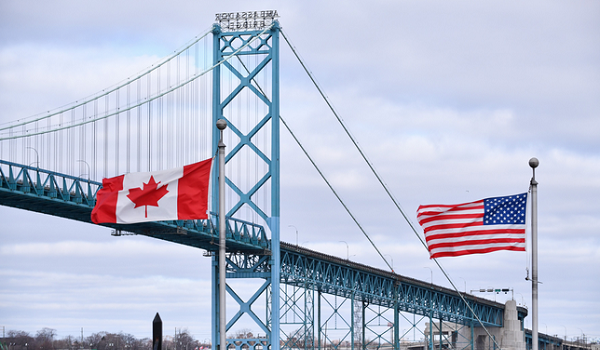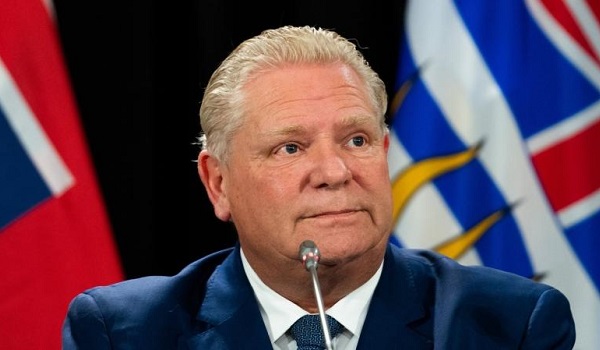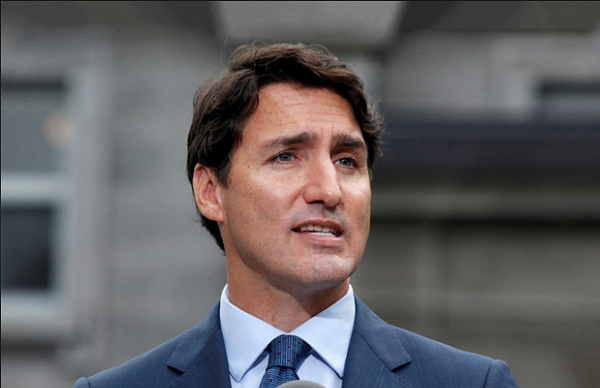New opinion poll finds Americans to like Canada more than Canadians do in return
The vast majority of Americans hold Canada in a positive light — but the same cannot be said about Canadians’ opinions of the U.S., a new poll from research firm Pollara suggests.
As the U.S. heads into what many see as its most consequential election in generations — and as Canadian officials brace for the very real prospect of another Donald Trump presidency — experts say the evident goodwill from our southern neighbours may help in tipping the scales toward Canada’s favour.
“It was good to see that Canada is the most positively viewed country by Americans,” Dan Arnold, chief strategy officer at Pollara, told the Star. “If we get into an environment next year — perhaps another Trump presidency or otherwise — where the U.S. is looking for scapegoats internationally… that’s something that can only help us in the long run.”
The survey, which queried 1,500 Americans and roughly 2,600 Canadians in late June, offers new insights on how citizens of both countries view the other, their heads of state and countries around the globe. The results might surprise you.
Majority of Americans like Canada and Justin Trudeau
According to the survey, 75 per cent of American respondents had positive impressions of Canada, with only 12 per cent holding a negative view. That makes Canada the most favourably viewed country by Americans, beating out Great Britain, France, Japan and Germany.
This favourability also extends to Prime Minister Justin Trudeau, who appears far more popular in the States than in his own country. Sixty-two percent of Americans familiar with Trudeau view him in a positive light — almost an exact flip of Canadians, of whom 58 per cent have a negative impression of their own leader.
“There’s a partisan divide there — Democrats are much more positive (toward Canada and Trudeau) than Republicans,” Arnold explained. “But even then, you’ve got 42 per cent of Republicans who are positive toward Trudeau.”
Notably, Americans are also far more aware of Trudeau than previous Prime Minister Stephen Harper, with 72 per cent saying they’re aware and 55 per cent expressing familiarity with the Liberal leader — making him the second best-known world leader in the U.S., second to Russian president Vladimir Putin.
“I think the fact that Americans do feel good about Canada bodes well for us in the future, especially as we go into a period where there are tariffs or isolationism sentiments coming out of the U.S.,” Arnold continued.
How do Canadians feel about the U.S.?
It appears Americans’ positivity toward Canada is somewhat unrequited, with 53 per cent holding positive impressions of the U.S. — but also 40 per cent viewing the States in a negative light.
When it comes to their recent presidents, 57 per cent of Canadians are positive on Joe Biden — whereas 75 per cent are negative on Donald Trump. Notably, Conservative voters were more likely to hold more negative views of all world leaders — with the exception of Trump and French politician Marine Le Pen
“Depending what happens with (the U.S.) election cycle, I imagine (Canadian) opinions (toward the U.S.) will shift significantly one way or the other in the next year, just given how strongly negative Canadians are towards Trump,” Arnold noted. “Whereas if Kamala Harris comes out on top of the election, I think that would probably improve perceptions.”
While Canadians weren’t polled on their opinions toward Harris, whom Biden endorsed to take on Trump in November’s election after dropping out of the race Sunday, a previous Pollara poll in February found 39 per cent of Canadians were positive and 17 per cent negative on the U.S. vice president. But these numbers will likely change in the coming days as the Harris campaign ramps up, Arnold noted.
How the U.S. feels about other countries
While a majority of Americans have favourable impressions of allies including Great Britain, France, Japan and Germany, the water gets murkier when it comes to Ukraine, Israel and India, the report suggests. The nation is nearly evenly split when it comes to positive and negative views on Mexico.
Notably, the reception toward Israel is strongly divided along party lines, with Republicans far more likely to view the country positively compared to Democrats.
Similarly, “Democrats are much more supportive of Ukraine” compared to Republicans, Arnold noted.
On the flipside, Americans hold the most negative views toward their adversaries, China and Russia.
What do Canadians think of other nations?
While Canadians held generally positive views of all the countries they were queried on — with Great Britain taking the lead at 75 per cent positivity — the country was far more negative regarding Russia, China, Israel and India.
China and Israel’s dip in popularity comes relatively recently — the country was neutral on China a decade ago, according to previous Pollara polling — while sentiment towards India likely plummeted after Trudeau revealed “credible allegations” the Indian government was behind the assassination of a Canadian citizen, Arnold noted.
Like the U.S., Conservative voters were less positive toward Ukraine — although the country had an overall more positive view on the embattled state than Americans.
Meanwhile, Liberals and the NDP held net negative impressions toward Israel (Conservative voters were split on the latter), a more overall negative view on the country than the U.S.
Methodology
Pollara’s report consists of two recent surveys among Canadian and American adults.
In Canada, an online survey amongst a randomly-selected, reliable sample of 2,610 adults was conducted June 21 to 26, 2024. A probability sample of this size carries a margin of error of ± 3.5%, 19 times out of 20. The margin of error is larger for sub-segments. The dataset has been weighted using the most current gender, age and region Census statistics, according to the poll.
In the U.S., a similar online survey queried 1,500 Americans from June 24 to 25, 2024. A probability sample of this size carries a margin of error of ± 2.5%, 19 times out of 20 (larger for sub-segments). The dataset was weighted using the most current gender, age, education, race, region and party registration statistics according to the US Census and voter file data.
This article was first reported by The Star













